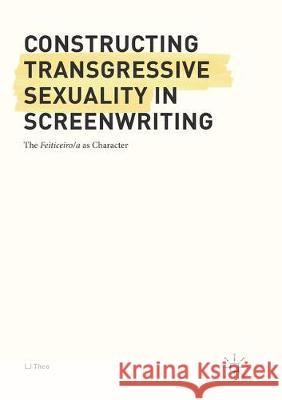Constructing Transgressive Sexuality in Screenwriting: The Feiticeiro/A as Character » książka
topmenu
Constructing Transgressive Sexuality in Screenwriting: The Feiticeiro/A as Character
ISBN-13: 9783319879345 / Angielski / Miękka / 2018 / 226 str.
Constructing Transgressive Sexuality in Screenwriting: The Feiticeiro/A as Character
ISBN-13: 9783319879345 / Angielski / Miękka / 2018 / 226 str.
cena 201,72 zł
(netto: 192,11 VAT: 5%)
Najniższa cena z 30 dni: 192,74 zł
(netto: 192,11 VAT: 5%)
Najniższa cena z 30 dni: 192,74 zł
Termin realizacji zamówienia:
ok. 22 dni roboczych
Bez gwarancji dostawy przed świętami
ok. 22 dni roboczych
Bez gwarancji dostawy przed świętami
Darmowa dostawa!
Kategorie:
Kategorie BISAC:
Wydawca:
Palgrave MacMillan
Język:
Angielski
ISBN-13:
9783319879345
Rok wydania:
2018
Wydanie:
Softcover Repri
Ilość stron:
226
Oprawa:
Miękka
Wolumenów:
01











